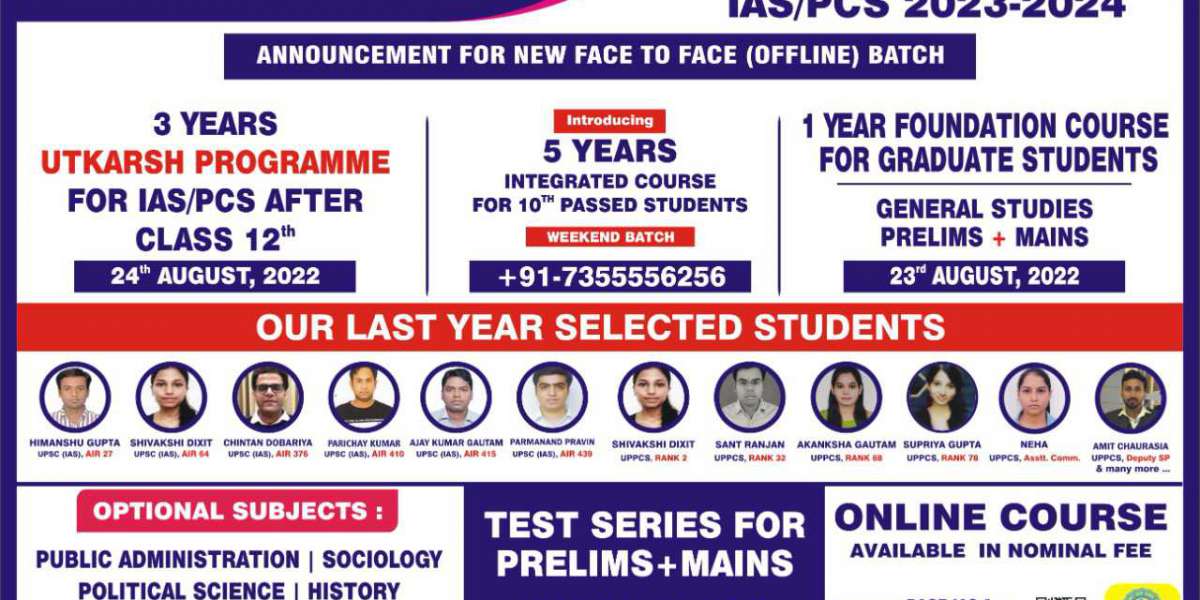Aspiring to excel in the esteemed Union Public Service Commission (UPSC) examination is a laudable objective that demands unwavering dedication, rigorous preparation, and a profound comprehension of current affairs. The UPSC Civil Services Examination stands as one of India's most formidable competitive tests, encompassing various stages such as the Preliminary Exam, Main Exam, and the Personality Test (Interview). Current affairs for IAS play a pivotal role in this exacting selection process, underscoring the need to remain abreast of the latest national and international events, developments, and issues.
In this all-encompassing guide, we will explore the significance of current affairs for UPSC examination, effective strategies to tackle this segment, and resources to facilitate your journey to being well-informed and well-prepared.
Why Current Affairs Are Crucial:
Integral to General Studies Papers: Current affairs are not confined to a standalone paper but are woven into the General Studies Papers (GS) within the UPSC syllabus. Questions pertaining to current events, governmental policies, global relations, and socio-economic matters often feature in both the Preliminary and Main Exams.
Cultivating Analytical and Decision-Making Skills: The capacity to scrutinize and decipher current affairs holds paramount importance for UPSC aspirants. Evaluators seek candidates capable of critically assessing the implications of contemporary events on society and governance.
Vital for the Interview Stage: Proficiency in current affairs is indispensable during the Personality Test (Interview) phase. Candidates are expected to converse about and offer insights into contemporary issues, both on the domestic and international fronts.
Effective Strategies for Current Affairs Preparation:
Daily Newspaper Engagement: Foster the habit of perusing a reputable daily newspaper, such as 'The Hindu,' 'The Indian Express,' or 'The Times of India.' Place emphasis on the editorial and opinion sections for profound analysis.
Utilize Monthly Periodicals: Employ monthly publications like 'Yojana,' 'Kurukshetra,' and 'Frontline' to gain a more comprehensive understanding of governmental policies and socio-economic concerns.
Leverage Online Resources: Stay connected to trustworthy online sources, including government websites, PIB (Press Information Bureau), PRS Legislative Research, and IDSA (Institute for Defence Studies and Analyses), to remain updated regarding official announcements and policy alterations.
Harness News Applications and Aggregators: Download news applications and aggregators like 'InShorts,' 'The Quint,' and 'Hindustan Times' to access concise updates on current affairs.
Effective Note-Making: Construct extensive notes that condense significant events, elucidate their significance, and delineate their repercussions on diverse sectors. Systematize these notes by themes to streamline the revision process.
Participate in Current Affairs Test Series: Enroll in UPSC-specific test series that encompass current affairs questions. This aids in assessing your knowledge and identifying areas necessitating further study.
Engage in Group Discussions: Participate in group discussions or become part of forums where you can deliberate and exchange ideas on current affairs topics. This bolsters your analytical acumen and broadens your perspectives.
Sustain Regular Revision: Consistent revision is indispensable. Allocate dedicated intervals for recurrent revision of current affairs materials to ensure optimal retention.
Resources to Bolster Current Affairs Preparation:
Official UPSC Website: Keep a vigilant eye on UPSC notifications, exam updates, and official releases.
RSTV (Rajya Sabha TV): Tune in to programs such as 'The Big Picture' and 'In Depth' on RSTV for comprehensive analyses of current issues.
PRS Legislative Research: Gain access to research papers and analyses concerning parliamentary proceedings and bills.
PIB (Press Information Bureau): Track press releases and governmental announcements for authoritative updates.
Conclusion:
In the UPSC expedition, current affairs do not constitute a mere segment to be covered; they constitute the lifeblood of the examination. Triumph in the UPSC Civil Services Examination hinges upon your capacity to connect contemporary events with the broader facets of governance, society, and international relations. By adopting efficacious strategies, adhering to disciplined reading routines, and employing a diverse array of resources, you can effectively navigate the ever-evolving terrain of current affairs, drawing closer to realizing your aspiration of serving the nation through the civil services.
Current Affairs | Current Affairs for UPSC | Current Affairs for UPSC Prelims | Current Affairs for IAS | Current Affairs for UPSC IAS UPSC IAS Syllabus | UPSC IAS Syllabus pdf | UPSC Syllabus | UPSC Syllabus PDF | UPSC Mains Syllabus








